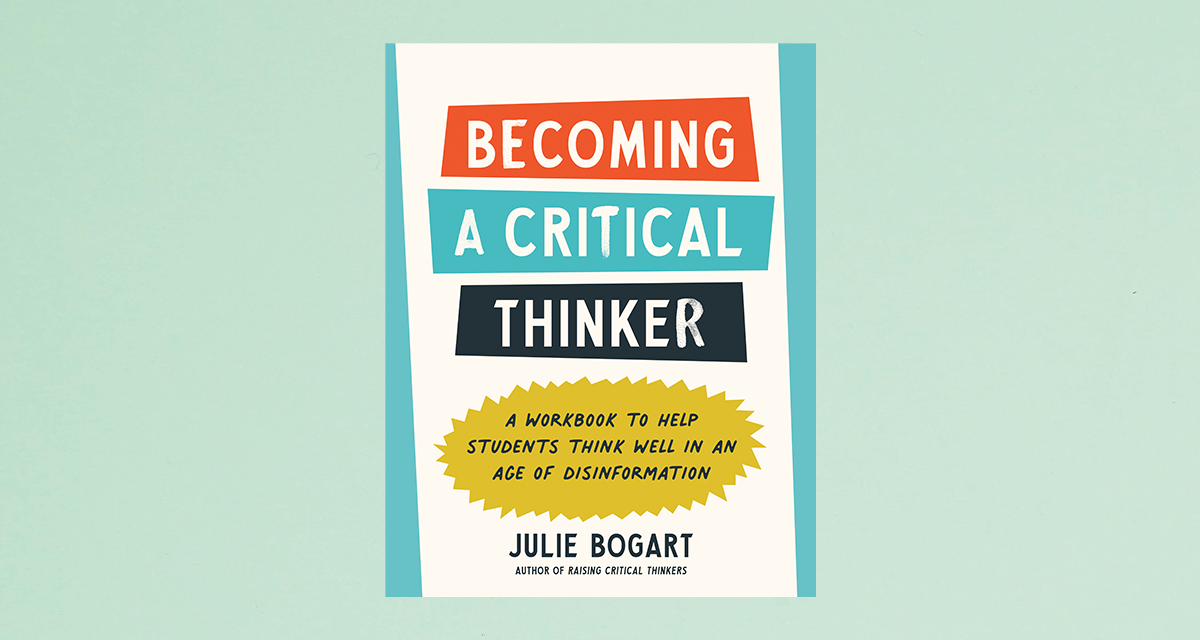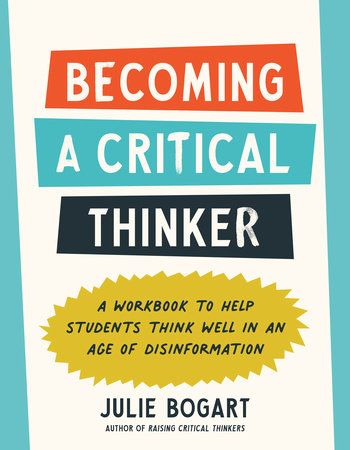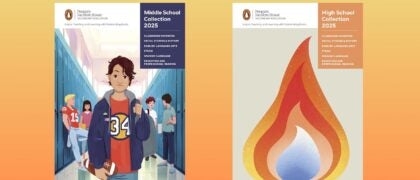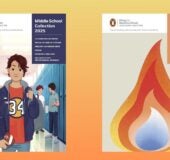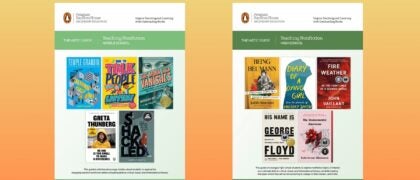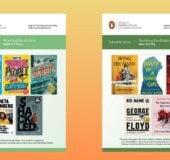Becoming a Critical Thinker is a practical resource to grow students’ ability to think well in an age of information overload.
At a time when we’re constantly flooded with contradictory information and opinions, critical thinking skills are more important than ever. This accessible workbook is full of valuable insights, thought-provoking questions, and useful exercises to help teens and preteens expand their perspectives, skillfully navigate thorny issues, recognize bias, identify misinformation, and become more comfortable with dissent and differences of opinion. Becoming a Critical Thinker offers essential tools for students to mature into thoughtful, curious, and empathetic learners.
LESSON TWELVE:
“I Am From” Poem
Writing a Mini-Memoir
(Once a Year)
BRIEF
So far, you’ve explored a variety of ways to know more about yourself and where you come from. The next activity is so enjoyable! The time-honored “I Am From” poem is a process of noticing all the factors that add up to you. (The original poem that inspired a movement of poetry in this vein was written by George Ella Lyon: “Where I’m From.”) Naturally, geographical location is part of what it means to be “from” somewhere. But we also are from a kind of cooking, from a religious or nonreligious tradition, from sounds and sights, from memories and holidays, from pain and joy. My son Liam wrote a powerful “I Am From” poem that I’d like to share here with you as an example.
Liam Bogart (fifteen years of age):
I am from the burning of Christmas trees
I am from the journaling of swirling listless leaves
I am from homemade paper cranes, haikus, and calendars I am from Easter, pipe smoking, and golden eggs
I am from candles, lopsided beeswax I am from nonexistent Santa myths
I am from vegan cinnamon rolls
I am from Blessing, Mr. Darcy, and the blessings of Mr. Darcy I am from Frodo Baggins
I am from Redwall
I am from Harry Potter, passed around in Italy
I am from The Odyssey, read aloud to silent children I am from History of the World and a sleeping mom I am from The Name of the Wind in Chicago
I am from myopic Jake and Noah the Duke
I am from silver-tongued Caitrin and Johannah the only 6 of 5 I am from obscenities yelled over StarCraft lost
I am from subconsciously learned grammar, Chomsky, and Julie I am from brave thinking and brave writing
I am from nonexistent science and Ing Wan’s math
I am from homeschool, unschool, high school, and college
ACTIVITY
Ask yourself the following questions to stir up concepts to include in your own “I Am From” poem (take notes to capture your answers):
- Identify your background—ethnic, religious, cultural, nationality . . . whatever defines you for you.
- Name where you live and have lived. Describe those places with a few words, nouns or adjectives.
- Name places you’ve
- Name your favorite
- Select four adjectives to describe
- Select a few adjectives to describe your family
- What family holidays and traditions are important to you? Think about particular traditions, too. In our family, we burn the Christmas tree in July and smoke corncob pipes on
- Name the communities you are a part
- What habits are your own? What habits have you learned from your community?
- What stories, songs, or legends and myths do you love?
- List two or three memorable experiences in your Could be a happy memory, like winning a tournament, or an unhappy one, like going in for surgery. Could be how you found a book on a tram in Chicago and read it there (like The Name of the Wind by Patrick Rothfuss, in Liam’s poem).
- Name something sad or difficult from your memory
- What textures, scents, tastes, and sounds do you associate with your childhood so far? Might be vanilla-scented candles or dust, or could be Lysol or chili in a slow cooker . . .
Consider these categories, too:
- Who I say I am
- Who others say I am
- Who I aspire to be
Instructions to construct your poem:
- Take these lists and add “I am from” to the start of each phrase or
- Type the list and triple Then print.
- Snip the sentences into strips and rearrange them into the most pleasing
- Staple each one to a page in the order you approve, rearrange the list on the computer, and print the final copy.
- Feel free to embellish or change words as you read and reread. It helps to read the sentences aloud, to hear the words and sequence as you revise.
Some students prefer to handwrite the final version and illustrate it with sketches.
You can write your poem in the space provided.
Identity is the foundation for all of what you do as a critical thinker. Because you’re always growing and changing, you can even write a new “I Am From” poem each year and keep the poems handy as useful portraits to return to.
JOURNAL
What new aspects of yourself did you uncover through this poem-writing activity? Any surprises? Take a few minutes to reflect on the experience.
Copyright © 2024 by Julie Bogart. All rights reserved. No part of this excerpt may be reproduced or reprinted without permission in writing from the publisher.

© Daniel Smyth
Julie Bogart is the creator of the award-winning, innovative Brave Writer program, teaching writing and language arts to thousands of families for more than twenty-five years. She’s the founder of Brave Learner Home, a 15,000-member community which supports homeschooling parents through coaching and teaching. Bogart is also the host of the popular Brave Writer podcast. Bogart holds a BA from UCLA and an MA from Xavier University, where she’s taught as an adjunct professor and was awarded the prestigious Madges Award for Outstanding Contribution to Society. She has five adult kids and three grandchildren. Bogart is also the author of The Brave Learner and Raising Critical Thinkers.

